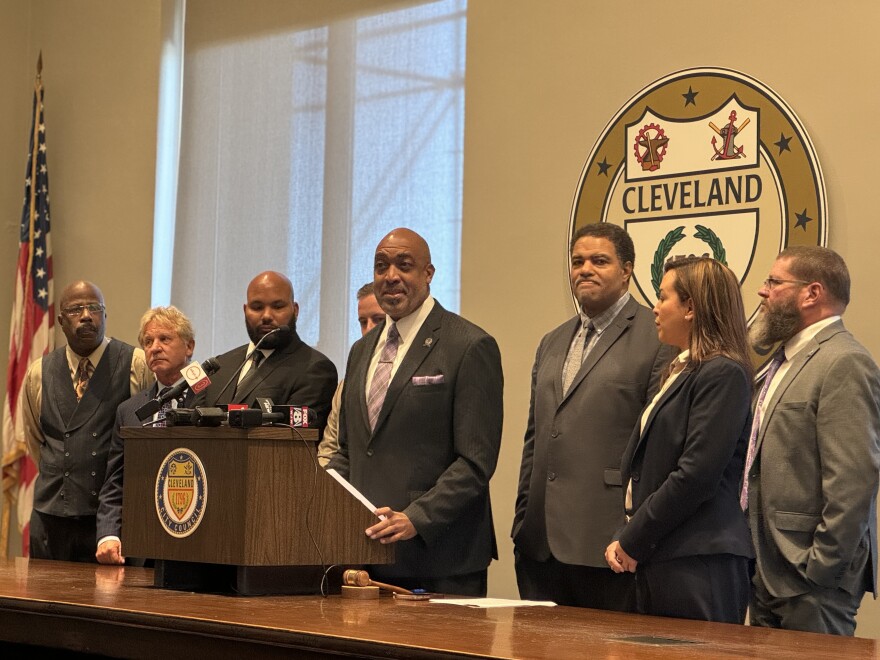Cleveland is cracking down on houses and businesses where police are repeatedly called about criminal activity.
Cleveland City Council passed an update to its criminal activity nuisance ordinance during its meeting Monday night, after several hearings in council’s safety committee. The update adds a mandatory $250 fine, expands the activities that can be declared a nuisance and lowers the legal threshold police need to establish that a nuisance activity occurred.
Council passed a criminal nuisance ordinance in 2018, but that that law was not effective, said Safety Committee Chair Mike Polensek
“What's clear in the data is that the nuisance law was not being enforced in the city of Cleveland. And, again, I want to thank [Safety Director Wayne Drummond] for acknowledging that and saying we're going to fix it,” Polensek said during an April 9 committee meeting.
According to numbers provided by the city, between 2019 and 2024, just 26 properties were declared a criminal nuisance.
One of the challenges was the burden of proof that the public safety director, who has the authority to declare a property a nuisance, was using, said Assistant Safety Director Jason Shachner.
Under the previous law, the city was only counting nuisance activities if there was an arrest or ticket issued. Now, there just needs to be probable cause, said Shachner.
“First you need to get a call of service to go out there,” said Shachner. “This allows them to take witness statements, to say, ‘Hey, I saw this person dealing drugs on the front porch.’”
After three instances of reported criminal activity, the public safety director can require an owner to create a plan to deal with the problems and submit it to the city. In the case of a property owner with a lot where people gather and commit crimes, that might mean putting up a fence or hiring security or possibly evicting a tenant, said Shachner.
Once a fourth instance occurs within 12 months, the property is declared a nuisance, is fined $250 and the public safety director can bill the property owner for police responses to the property.
The city has a separate civil nuisance property law that addresses non-criminal issues like overgrown weeds and code violations.
Not all council members were convinced the ordinance went far enough, with some preferring a lower threshold than four reported nuisance activities or including nuisance incidents over as much as two years to count toward a nuisance declaration.
“This is my life,” said Councilmember Joe Jones. “And I need to have a law that’s going to help me hold accountable these people that are disruptive and they’re destroying the peace and they’re destroying the neighborhood.”
The ordinance also expands the definition of who and what can be held against a property owner. Previously, owners could only be held accountable for activities by them, someone who lives at or has a business at the property or invited guests of the property. The city added people attempting to visit that property.
“How about people waiting to enter, customers waiting to enter or outside hanging around a certain area? Because you’re inviting a nuisance if you’re creating an atmosphere on your property where there just aren’t any rules,” said Shachner.
Additional activities, like drug offenses and vehicle noise and equipment violations and street racing in an attempt to address people using parking lots for donuts or racing, were added to the list of nuisance activities.
The new ordinance takes effect immediately. Council may revisit it after the summer if it does not lead to increased enforcement, said Polensek.



